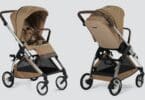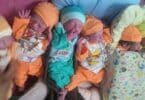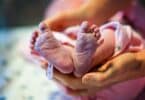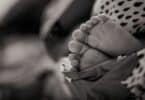Three-week-old Alexandre Mercier slept through his moment of fame, cradled in his father’s arms.
But his parents — and the couple’s fertility doctors — were all smiles last week as they celebrated the first baby born through natural-cycle egg donation.
The natural-cycle procedure is cheaper, less invasive and results in fewer multiple births than the better known stimulated-ovulation process, says Jacques Kadoch, a specialist in natural-cycle in vitro fertilization at the OVO Fertility Clinic in Montreal.
Kadoch said he hopes Alexandre’s birth — described as a world-first — will inspire other couples, and encourage more women to donate eggs.
The private clinic, which has links with the Universite de Montreal teaching hospital, has about 100 women on a waiting list for donor eggs.
In Alexandre’s case, it was his aunt, Nathalie Ladouceur, 35, who donated the egg to help her sister, Manon, who was born without ovaries.
After only one try at fertilization, Manon gave birth to Alexandre on March 15.
“It was a miracle, a wonderful gift for us,” Manon Ladouceur, 41, said at a news conference to publicize the ground-breaking event. “I was always told I couldn’t have children.”
Kadoch said OVO is the only fertility clinic in Canada offering the natural-cycle procedure, which has a success rate for about one in three women under 35 with fertility problems.
Stimulated-cycle fertilization has a success rate of about 60 per cent, but it also comes with a 60 per cent chance of multiple births.
Women undergoing the stimulated-cycle procedure get hormone injections twice a day, for about three weeks to stimulate the ovaries, Kadoch said. The two healthiest eggs are removed to be fertilized in a lab and then transplanted to the patient.
n the natural-cycle procedure, one healthy egg that matures naturally is fertilized and transplanted, he said.
Nathalie Ladouceur took only minimal drugs to prevent early ovulation, said Robert Hemmings, who oversees OVO’s egg donation program. The sisters also followed a brief drug therapy to get their body cycles in sync, prior to fertilization.
Manon said she and her husband, Alain Mercier, paid about $5,000 for the fertilization treatment; stimulated-cycle procedures can cost more than $10,000, including medication.
Neither procedure is covered by government health insurance but Quebec offers a 30 per cent tax credit, to a maximum of $6,000 a year, to patients who undergo the treatments, said OVO clinic director Renee Cardinal.






